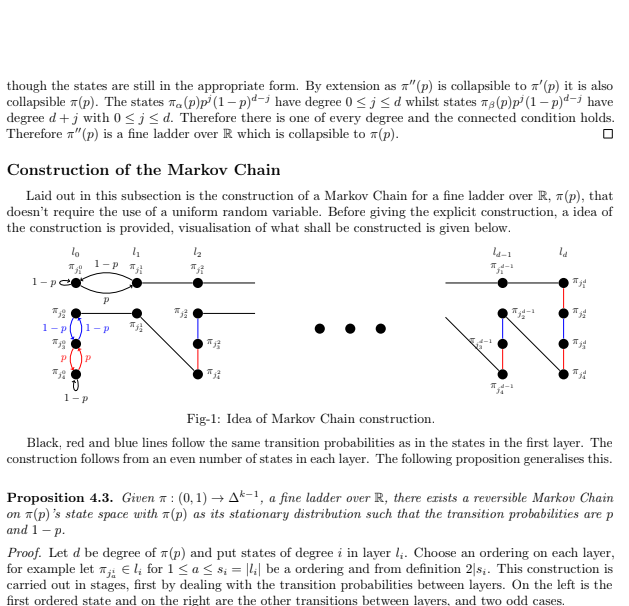
Bernoulli factory to a dice enterprise
June 2013 - June 2014
In the summer of 2013, I got funded by the University of Warwick to work under the guidance of Professor Dmitriy Rumynin on an intriguing mathematical problem.
Our problem was framed in the context of probability and had a seemingly straightforward premise - given a coin, the probability of landing heads or tails of which was unknown, how could we simulate other coins as a function of the original one? For instance, if the unknown probability of achieving heads was p, you could generate p2 by tossing the coin twice.
This seemingly simple problem turned out to be my gateway into the world of university-level research, introducing me to the art of organizing my time, tackling open-ended problems, and applying ideas gleaned from other papers to our investigation.
Our exploration into this realm of uncertainty led us to devise an innovative algorithm for rational functions. We utilized perfect sampling with Markov chains, a method that hinged on the principles of probability theory and statistics. As our work progressed, we found that our functions could be used to construct an envelope of functions, which could, in turn, estimate any other function.
In 2022, after years of rigorous exploration, our research came to fruition. With the valuable assistance of Giulio Morina, Dmitriy Rumynin Ph.D. student, we published our findings in our paper From the Bernoulli factory to a dice enterprise via perfect sampling of Markov chains.
Reflecting upon this formative journey, I realize the value this experience added to my academic growth. My first dive into research was not just about solving a mathematical problem; it was about embracing the unknown, persevering through challenges, and ultimately contributing to the broader scientific discourse. This experience continues to shape my approach to problem-solving and research today, nurturing in me an undying curiosity and a relentless pursuit of knowledge.